Table of Contents
ANTONIO CARLOS “TOM” JOBIM – TRISTE (Guitar arr. TAB SHEET MUSIC, partitura)
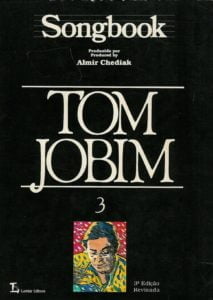
Lyrics:
Triste é viver na solidão
Na dor cruel de uma paixão
Triste é saber que ninguém
Pode viver de ilusão
Que nunca vai ser nunca vai dar
O sonhador tem que acordar
Tua beleza é um avião
Demais p’rum pobre coração
Que pára pra te ver passar
Só pra me maltratar
Triste é viver na solidão
Best Sheet Music download from our Library.
‘Triste’ (meaning ‘Sad’ in English) is a bossa nova song composed in 1966 by Antônio Carlos Jobim, who also wrote the lyrics in English and Portuguese.
Background
Jobim wrote the song in late 1966 while staying at the Sunset Marquis Hotel in Los Angeles, while waiting for Frank Sinatra to return from a vacation in Barbados to begin recording his album Francis Albert Sinatra & Antônio Carlos Jobim (1967).
The first recording of the song was an instrumental version by Jobim for his 1967 Wave album. Sinatra recorded it with Jobim two years later in the sessions for his planned second album, SinatraJobim, which was eventually released as Sinatra & Company’s Side A (1971).
Jobim recorded an English vocal version in 1980 on the album Terra Brasilis.
Antonio Carlos Jobim
Antônio Carlos Brasileiro de Almeida Jobim (January 25, 1927 – December 8, 1994), also known as Tom Jobim was a Brazilian composer, pianist, composer, arranger, and singer. Considered one of the great exponents of Brazilian music, Jobim internationalized bossa nova and, with the help of leading American artists, fused it with jazz in the 1960s to create a new sound with popular success. As such, he is sometimes referred to as the ‘father of bossa nova’.
Jobim was a major force behind the creation of the bossa nova style, and his songs have been performed by many singers and instrumentalists internationally.
Please, subscribe to our Library.
If you are already a subscriber, please, check our NEW SCORES’ page every month for new sheet music. THANK YOU!
In 1965, the Getz/Gilberto album was the first jazz record to win the Grammy Award for Album of the Year. It also won for Best Jazz Instrumental Album – Individual or Group and for Best Engineered Album, Non-Classical. The album’s single ‘Garota de Ipanema’ (‘The Girl from Ipanema’), one of the most recorded songs of all time, won Record of the Year.
Jobim composed many songs that are now included in the standard jazz and pop repertoires. The song ‘Garota de Ipanema’ has been recorded more than 240 times by other artists.
His 1967 album with Frank Sinatra, Francis Albert Sinatra and Antônio Carlos Jobim, was nominated for Album of the Year in 1968.
Antônio Carlos Jobim was born in the middle-class district of Tijuca in Rio de Janeiro. His father, Jorge de Oliveira Jobim (São Gabriel, Rio Grande do Sul; 1889-1935), was a writer, diplomat, teacher and journalist.
He came from a prominent family, being the great-nephew of José Martins da Cruz Jobim, a senator, private councilor, and physician to Emperor Dom Pedro II. While studying medicine in Europe, José Martins added Jobim to his surname, paying homage to the town his family came from in Portugal, the parish of Santa Cruz de Jovim, Porto.
His mother, Nilza Brasileiro de Almeida (c. 1910-1989), was of partially indigenous descent from northeastern Brazil.
When Antônio was still a baby, his parents separated and his mother moved with her children (Antônio Carlos and his sister Helena Isaura, born February 23, 1931) to Ipanema, the beachside neighborhood that the composer would later would celebrate in their songs.
In 1935, when Jobim’s elder died, Nilza married Celso da Frota Pessoa (died February 2, 1979), who would encourage the career of her stepson. It was he who gave Jobim his first piano. As a young man of impoverished youth, Jobim made a living playing in nightclubs and bars and later as an arranger for a record label before beginning to achieve success as a songwriter.
Musical influences
Jobim’s musical roots were planted firmly in the work of Pixinguinha, the legendary musician and composer who pioneered modern Brazilian music in the 1930s. His teachers included Lúcia Branco and, beginning in 1941, Hans-Joachim Koellreutter, a German composer who lived in Brazil and introduced atonal and twelve-tone composition in the country.
Jobim was also influenced by French composers Claude Debussy and Maurice Ravel, and by Brazilian composers Ary Barroso and Heitor Villa-Lobos, who has been described as ‘Jobim’s most important musical influence’.
Among many topics, his lyrics talked about love, self-discovery, betrayal, joy, and especially about birds and the natural wonders of Brazil, such as the ‘Mata Atlântica’ forest, characters from Brazilian folklore, and his native city of Rio de Janeiro.
In the 1940s, Tom Jobim began playing the piano in bars and nightclubs in Rio de Janeiro, and in the early 1950s, he worked as an arranger at the Continental Studio, where he recorded his first composition, in April 1953, when Brazilian singer Mauricy Moura recorded Incerteza, a Tom Jobim composition with lyrics by Newton Mendonça.
Jobim rose to prominence in Brazil when he teamed up with poet and diplomat Vinicius de Moraes to write the music for the play Orfeu da Conceição (1956).
The most popular song on the show was ‘Se Todos Fossem Iguais A Você’ (‘If Everyone Were Like You’). Later, when the play was adapted into a film, producer Sacha Gordine did not want to use the play’s existing music. Gordine asked De Moraes and Jobim for a new score for the film Orfeu Negro, or Black Orpheus (1959). Moraes was at the time in Montevideo, Uruguay, working for the Itamaraty (the Brazilian Ministry of Foreign Affairs), so Jobim and he were only able to write three songs, mainly by phone (‘A felize’, ‘Frevo’ and ‘Frevo’). Or nosso love ‘).
This collaboration proved successful, and de Moraes went on to write the lyrics for some of Jobim’s most popular songs.
In 1958, the Brazilian singer and guitarist João Gilberto recorded his first album with two of Tom Jobim’s most famous songs: Desafinado and Chega de Saudade. This album inaugurates the Bossa Nova movement in Brazil. The sophisticated harmonies of his songs caught the attention of jazz musicians in the United States, mainly after Tom Jobim’s first performance at Carnegie Hall in 1962.
A key event in making Jobim’s music known in the English-speaking world was his collaboration with American jazz saxophonist Stan Getz, Brazilian singer João Gilberto, and Gilberto’s wife at the time, Astrud Gilberto, resulting in two albums, Getz/Gilberto. (1963) and Getz/Gilberto Vol. 2 (1964).
The release of Getz/Gilberto created a bossa nova craze in the United States and later internationally. Getz had previously recorded Jazz Samba with Charlie Byrd (1962) and Jazz Samba Encore! with Luiz Bonfa (1964). Jobim wrote many of the songs on Getz/Gilberto, which became one of the best-selling jazz albums of all time, and turned Astrud Gilberto, who sang on ‘Garota de Ipanema’ (The Girl from Ipanema) and ‘ Corcovado’, into an international sensation.
At the 1965 Grammy Awards, Getz/Gilberto won the Grammy Award for Album of the Year, the Grammy Award for Best Jazz Instrumental Album, Individual or Group, and the Grammy Award for Best Non-Classical Engineered Album. ‘The Girl from Ipanema’ won the Grammy Award for Record of the Year. Among his later successes is ‘Águas de Março’ (Waters of March 1972), for which he wrote lyrics in both Portuguese and English, and which was later translated into French by Georges Moustaki (Les Eaux de Mars, 1973 ).
In early 1994, after finishing his Antonio Brasileiro album, Jobim complained to his doctor, Roberto Hugo Costa Lima, of urinary problems. He underwent surgery at Mount Sinai Hospital in New York City on December 2, 1994.
On December 8, while recovering from an operation, he suffered a cardiac arrest caused by a pulmonary embolism and two hours later, another cardiac arrest, from which he died. .
He was survived by his children and grandchildren. His last album, Antonio Brasileiro, was released posthumously three days after his death.
His body remained in state until he was duly buried on December 20, 1994. He is buried at the Cemitério São João Batista in Rio de Janeiro.
Jobim’s Legacy
Jobim is widely considered to be one of the most important composers of the 20th century. Many of his songs are jazz standards.
American jazz singers Ella Fitzgerald and Frank Sinatra featured Jobim’s songs on their albums Ella Abraça Jobim (1981) and Francis Albert Sinatra & Antônio Carlos Jobim (1967), respectively. The 1996 CD Wave: Antonio Carlos Jobim’s Songbook included performances of Jobim themes by Oscar Peterson, Herbie Hancock, Chick Corea, and Toots Thielemans.
Jobim was an innovator in the use of sophisticated harmonic structures in popular songs. Some of his melodic turns, like the melody that he insists on the major seventh of the chord, became common in jazz after he used them.
Brazilian collaborators and performers of Jobim’s music include Vinicius de Moraes, João Gilberto (often credited as co-creator or creator of bossa nova), Chico Buarque, Edu Lobo, Gal Costa, Elis Regina, Sérgio Mendes, Astrud Gilberto and Flora Purim, Eumir Deodato and conductor/composer Claus Ogerman arranged many recordings of Jobim’s tunes.
He won a Lifetime Achievement Award at the 54th Grammy Awards in 2012. As a posthumous tribute, on January 5, 1999, the Municipality of Rio de Janeiro changed the name of Rio’s Galeão International Airport, located on Governador Island, to bear the name of the composer. Galeão airport is explicitly mentioned in his composition ‘Samba do Avião’. In 2014, Jobim was posthumously inducted into the Latin Songwriters Hall of Fame.
In 2015, Billboard named Jobim one of the 30 most influential Latin artists of all time. [twenty-one]
American contemporary jazz singer Michael Franks dedicated his 1995 album Abandoned Garden to Jobim’s memory. English singer-songwriter George Michael frequently acknowledged Jobim’s influence. His 1996 album Older was dedicated to Jobim, and he recorded ‘Desafinado’ on Red Hot + Rio (1996) with Astrud Gilberto.
The official mascot of the 2016 Summer Paralympics in Rio de Janeiro, Tom, was named after him.
Discography and compositions
| Studio Albums: 1963: El compositor de Desafinado, juega ( Verve )1965: El maravilloso mundo de Antônio Carlos Jobim ( Warner Bros. Records )1966: Amor, cuerdas y Jobim ( Warner Bros. Records )1967: Un cierto señor Jobim ( Warner Bros. Records )1967: Ola ( CTI / A&M )1970: Marea (A&M)1970: Flor de piedra (CTI)1973: Jobim ( MCA )1976: Urubu (Warner Bros.)1980: Terra Brasilis (Warner Bros.)1987: Passarim (Verve)1995: Antônio Brasileiro ( Colombia )1995: Inédito ( Ariola )1997: Minha Alma Canta (Lumiar) |
Cooperations:
- 1954: Sinfonia do Rio de Janeiro (Continental), con Billy Blanco
- 1956: Orfeu da Conceição (Odeón), con Vinicius de Moraes
- 1957: “O Pequeno Príncipe” (Festa), audiolibro del que Jobim compuso la banda sonora
- 1961: Brasilia – Sinfonia Da Alvorada (Colombia), con Vinicius de Moraes
- 1964: Getz / Gilberto (Verve)
- 1964: Caymmi Visita Tom (Elenco / Polygram / Philips ), con Dorival Caymmi
- 1967: Francis Albert Sinatra y Antônio Carlos Jobim (Reprise)
- 1974: Elis & Tom ( Philips ), con Elis Regina
- 1977: Miúcha & Antônio Carlos Jobim ( RCA ), con Miúcha
- 1979: Miúcha & Tom Jobim ( RCA ), con Miúcha
- 1981: Edu & Tom ( Philips ), con Edu Lobo
- 1983: Gabriela ( RCA ), banda sonora original de la película “Gabriela, Cravo e Canela”
Browse in the Library:
| Artist or Composer / Score name | Cover | List of Contents |
|---|---|---|
| Aerosmith – I Dont Want To Miss A Thing | ||
| Aerosmith 1973-1979 – Guitar Play Along with MP3 audio Guitar Signature Licks with Tablature |
 |
Aerosmith 1973-1979 Signature Licks |
| Aerosmith Greatest Hits (Guitar) with Tablature |
 |
aerosmith greatist hist guitar |
| Aerosmith Nine Lives Original Songbook Guitar Tabs |
 |
|
| Aesthetics Of Music Musicological Perspectives by Stephen Downes(Book) |
 |
|
| Affections touching across time (Inuyasha OST) Kaoru Wada | ||
| Afi – Love Like Winter | ||
| Afi – Miss Murder | ||
| AFI’s Top 25 Film Scores Songbook |
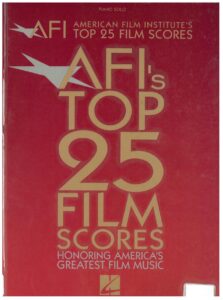 |
AFI’s Top 25 Film Scores Songbook |
| Africa – Toto.mscz | ||
| Africa And The Blues (Book) |
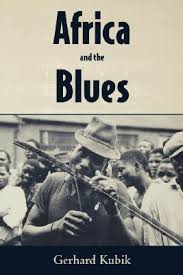 |
|
| Afro Cuban Keyboard Grooves by Manny Patiño and Jorge Moreno |
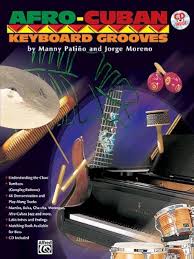 |
Afro Cuban Keyboard Grooves by Manny Patiño and Jorge Moreno |
| Afroman – Because I Got High | ||
| After Hours for PIANO DUET by Pam Wedgwood |
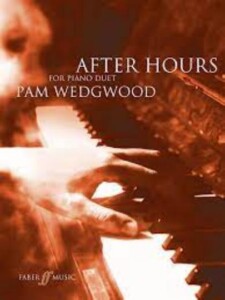 |
After Hours for PIANO DUET by Pam Wedgwood |
| After Hours For Solo Piano. Book 3 (Pam Wedgwood) |
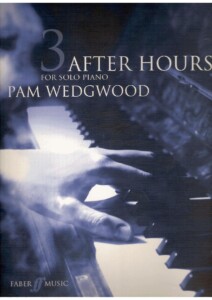 |
After Hours For Solo Piano. Book 3 (Pam Wedgwood) |
| After Hours for Trumpet and Piano by Pam Wedgwood |
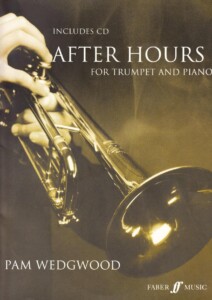 |
After Hours for Trumpet and Piano by Pam Wedgwood |
| After You’ve Gone Turner Layton And Henry Creamer 1918 Jazz Standard (Vintage sheet music) |
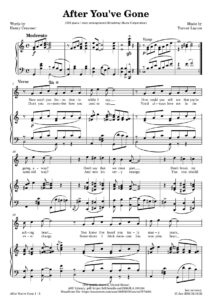 |
|
| Again, as before, alone (P. I. Tchaikovsky) | ||
| Age of Empires 2 – Main theme | Age of Empires 2 – Main theme | |
| Agnes Obel Chord Left |
 |
|
| Agnes Obel Fuel To Fire |
 |
|
| Agnes Obel Pass Them By |
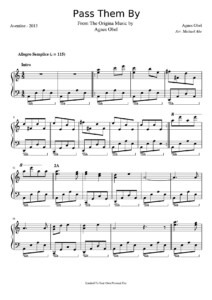 |
|
| Agnes Obel – Riverside Piano |
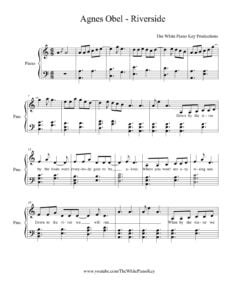 |
|
| Agnes Obel – September Song |
 |
|
| Agnes Obel – Tokka |
 |
|
| Agnes Obel Falling Catching |
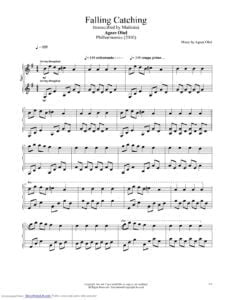 |
|
| Agnes Obel Falling, Catching |
 |
|
| Agnes Obel Familiar |
 |
|
| Agnes Obel Fuel To Fire |
 |
|
| Agnes Obel It’s Happening Again |
 |
|
| Agnes Obel Just So |
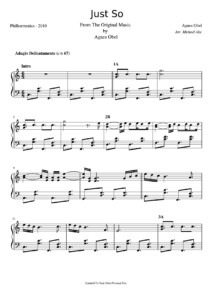 |
|
| Agnes Obel Mary |
 |
|
| Agnes Obel Riverside |
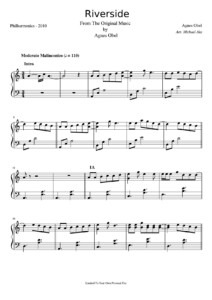 |
|
| Agnes Obel September Song |
 |
|
| Agnes Obel Smoke And Mirrors |
 |
|
| Agnes Obel The Curse |
 |
|
| Agnes Obel Tokka |
 |
|
| Agnes Obel Words Are Dead |
 |
|
| Aguas De Março Jazz Piano Score Jobim |
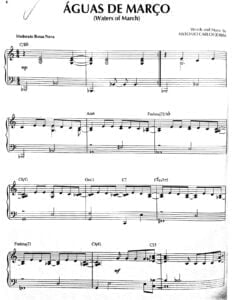 |
|
| Aha – Take On Me |
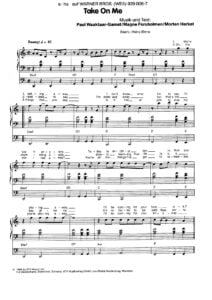 |
|
| Ahead On Our Way Ff Vii (Musescore File).mscz | ||
| Ahmad Jamal Poinciana Full score (Song of the Tree) | Ahmad Jamal Poinciana Full score (Song of the Tree) | |
| Ahmad Jamal The Ahmad Jamal Collection (Artist Transcriptions) |
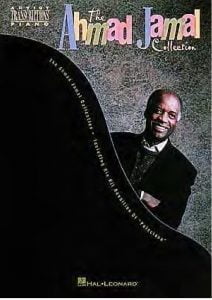 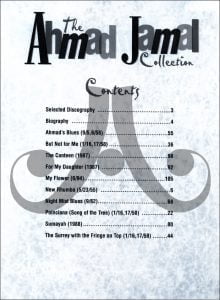 |
Ahmad Jamal The Ahmad Jamal Collection Artist Piano Transcriptions contents Ahmad’s Blues, But Not For Me, The Canteen, For My Daughter, My Flower, New Rhumba, Night Mist Blues, Poinciana (Song Of The Tree), Sumayah, The Surrey With The Fringe On Top |
| Ahmad Jamal Wave from the album The Awakening |
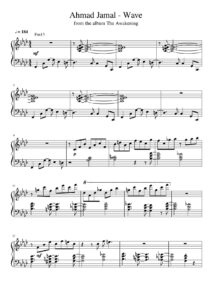 |
|
| Ai Mei – Rainie Yang | ||
| Aimee Mann – Wise Up | ||
| Ain’t Misbehavin’ Fats Waller As Played By Joe Pass (Musescore File).mscz | ||
| Ainsi soit je (Mylène Farmer) | ||
| Air on the G string, from BWV 1068 (10 string, Yepes tuning).mscz | ||
| Air Supply Greatest Hits |
 |
AIR SUPPLY GREATEST |
| Airegin by Soony Rollins – Jazz Play Along with sheet music |
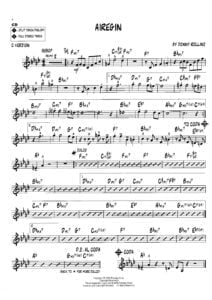 |
Airegin |
| Akira Ifukube – Sonata for Violin and Piano I – Allegro |
 |
|
| Akira Ifukube End Titles Godzilla Vs Destoroyah |
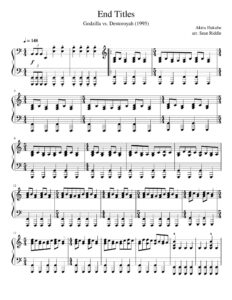 |
|
| Akira Ifukube Mesa March Godzilla |
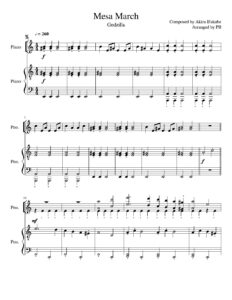 |
|
| Akira Yamaoka Silent Hill 2 Promise (Reprise) |
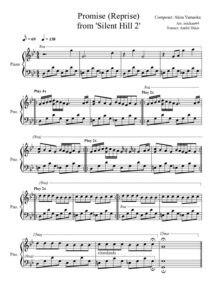 |
|
| Akira Yamaoka, Silent Hill Room Of Angel (Piano) | Akira Yamaoka, Silent Hill Room Of Angel (Piano) | |
| Aknin, Laurent Le Choix Du Coeur Easy Piano Solo (du film The Student and Mister Henri (L’Étudiante et Monsieur Henri) | Aknin-Laurent-Le-Choix-Du-Coeur-Easy-Piano-Solo | |
| Al Di Meola – Guitar Technique SongBook with Tablature |
 |
Al Di Meola – Guitar technique SongBook |
| Al Di Meola A Guide To Guitar Chords Scales And Arpeggios Master Classes With Bob Aslanian |
 |
Al Di Meola A Guide To Guitar Chords Scales And Arpeggios Master Classes With Bob Aslanian |
| Al Di Meola Collection |
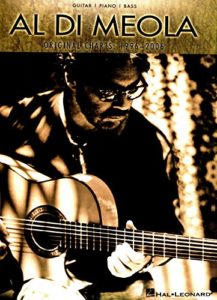 |
al di meola collection songbook |
| Al Di Meola Enigma Of Desire (Guitar) |
 |
|
| Al Di Meola Guitar School Elegant Gypsy Songbook with Tablature |
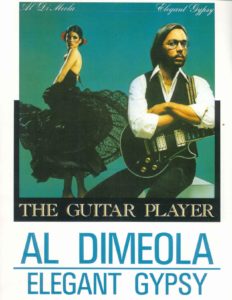 |
Al Di Meola Guitar School Elegant Gypsy Songbook |
| Al Di Meola Guitar Tabs Songbook Electric Rendezvous |
 |
Al Di Meola Guitar Tabs Songbook Electric Rendezvous |
| Al Di Meola Solace (Guitar) | Al Di Meola Solace (Guitar) | |
| Al Di Meola Solos (Guitar) with Tablature |
 |
al di meola solos |
| Al Di Meola Super Guitarist Guitar Tabs Songbook |
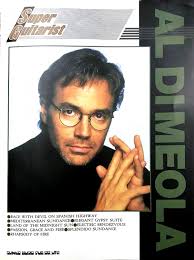 |
Al Di Meola Super Guitarist Guitar Tabs Songbook |
| Al Di Meola When Youre Gone | Al Di Meola When Youre Gone | |
| Al Green – Let´s Stay Together Melody And Guitar Chords |
 |
|
| Al Green Let’s Stay Together |
 |
|
| Al Jarreau – Breakin’ Away |
 |
|
| Al Jarreau Spain (I can recall) Piano Vocal Guitar Chords |
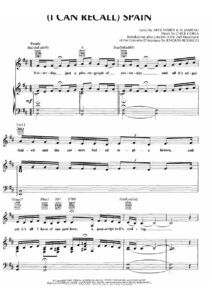 |
|
| Al Jarreau The Best Of Al Jarreau Piano Vocal Guitar chords |
 |
Al Jarreau The Best Of Book |
| Al Stewart – Time Passages |
 |
|
| Al Stewart – Year Of The Cat |
 |
|
| Al Stewart Greatest Songs Of Book |
 |
AL STEWART SONGBOOK |
| Aladdin – A Whole New World – Alan Menken | Aladdin – A Whole New World – Alan Menken | |
| Aladdin – Arabian Nights (Musescore File).mscz | ||
| Aladdin – Broadway Musical Songbook – Alan Menken |
 |
Aladdin – Broadway Musical Songbook – Alan Menken |
| Alain Barriere – Les Guinguettes |
 |
|
| Alain Barrière – Emporte Moi (Y Volveré) |
 |
|
| Alain Barriere – Tu T’en Vas |
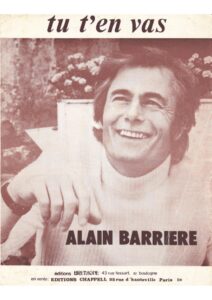 |
|
| Alain Chamfort Songbook Book |
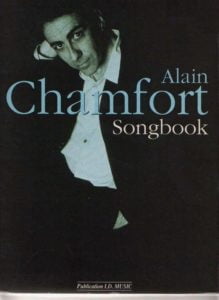 |
ALAIN CHAMFORT SONGBOOK |
| Alain Souchon Au Ras Des Paquerettes Piano Vocal Guitar TAB |
 |
Alain Souchon Au Ras Des Paquerettes Piano Vocal Guitar TAB |
| Alain Souchon Ecoutez d’où Ma Peine Vient Piano Vocal Guitar chords |
 |
Alain Souchon Ecoutez d’où Ma Peine Vient Piano Vocal Guitar chords |
| Alain Souchon les plus grands succès de (partitions, sheet music) Piano Vocal |
 |
Alain Souchon les plus grands succès de (partitions, sheet music) Piano Vocal |
| Alan Belkin – Una Guía Práctica de Composición Musical (Spanish) | Book Theory | |
| Alan Jackson – Between the Devil and Me |
 |
|
| Alan Jackson – Buicks to the Moon |
 |
|
| Alan Jackson – I’ll Go On Loving You |
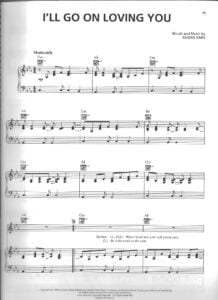 |
|
| Alan Jackson – It’s Five Oclock Somewhere |
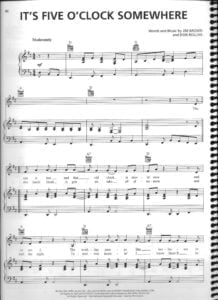 |
|
| Alan Jackson – Little Bitty |
 |
|
| Alan Jackson – Once In A Lifetime Love |
 |
|
| Alan Jackson – Remember When |
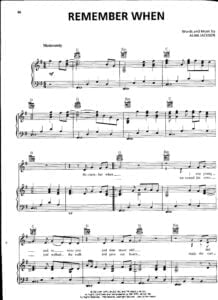 |
|
| Alan Jackson – That’d Be Alright |
 |
|
| Alan Jackson – There Goes |
 |
|
| Alan Jackson – Where I Come From |
 |
|
| Alan Jackson Remember When Piano Solo |
 |
|
| Alan Lomax – The Penguin Book Of American Folk Songs (GUITAR) |
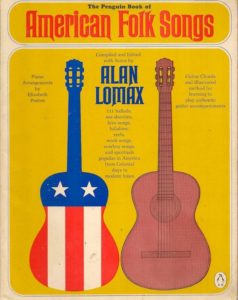 |
Alan Lomax – The Penguin Book Of American Folk Songs GUITAR) |
| Alan Menken – A Christmas Carol A Place Called Home |
 |
|
| Alan Menken – Beauty and the Beast (easy piano) Complete score arr. piano & guitar chords |
 |
Alan Menken – Beauty and the Beast (easy piano) |
| Alan Menken – Little Shop Of Horrors |
 |
Alan Menken – Little Shop Of Horrors |
| Alan Menken – Songbook |
 |
Alan Menken songbook sheet music |
| Alan Menken – Tangled (Disney) Rapunzel songbook |
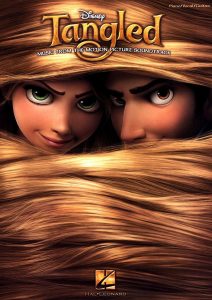 |
Tangled |
| Alan Menken A Christmas Carol (The Musical) |
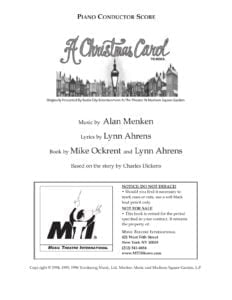 |
|
| Alan Menken Aladdin (songbook) |
 |
Alan Menken Aladdin |
| Alan Menken I see the light (Tangled-Disney) | Alan Menken I see the light (Tangled-Disney) | |
| Alan Menken My Christmas Tree from Home Alone 2 Lost In New York |
 |
|
| Alan Menken The Hunchback Of Notre Dame (Disney) |
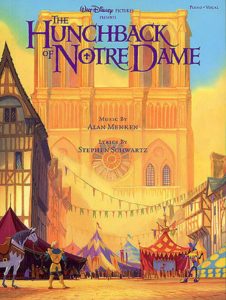 |
Alan Menken The Hunchback Of Notre Dame (Disney) |
| Alan Menken The Little Mermaid Piano Vocal Score (The Musical) | Alan Menken The Little Mermaid Piano Vocal Score (The Musical) | |
| Alan Parsons – Eye in the Sky |
 |
|
| Alan Parsons Project – Don’t Answer Me |
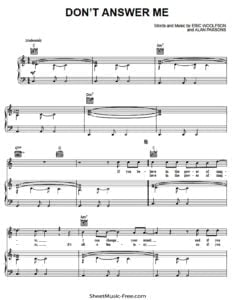 |
|
| Alan Parsons Project – Eye In The Sky |
 |
|
| Alan Parsons Project – Time |
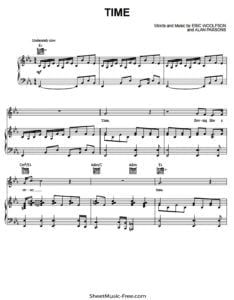 |
|
| Alan Parsons Project – Eve (Piano, Vocal, Guitar) Songbook |
 |
Alan Parsons Project – Eve (Piano, Vocal, Guitar) Songbook |
| Alan Parsons Project – Eye In the Sky (Piano, Vocal, Guitar Songbook) |
 |
Alan Parsons Project – Eye In the Sky (Piano, Vocal, Guitar Songbook) |
| Alan Parsons Project – I Robot (Piano, Vocal, Guitar) Songbook |
 |
Alan Parsons Project – I Robot (Piano, Vocal, Guitar) Songbook |
| Alan Parsons Project – The Essential |
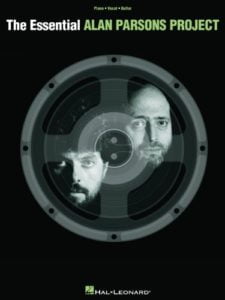 |
Alan Parsons Project |
| Alan Parsons Project Gaudí Piano Vocal Guitar chords |
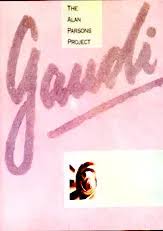 |
Alan Parsons Project Gaudí Piano Vocal Guitar chords |
| Alan Silvestri – Avengers Infinity War Medley – Piano Solo | Alan Silvestri – Avengers Infinity War Medley – Piano Solo | |
| Alan Silvestri – Contact Main Theme |
